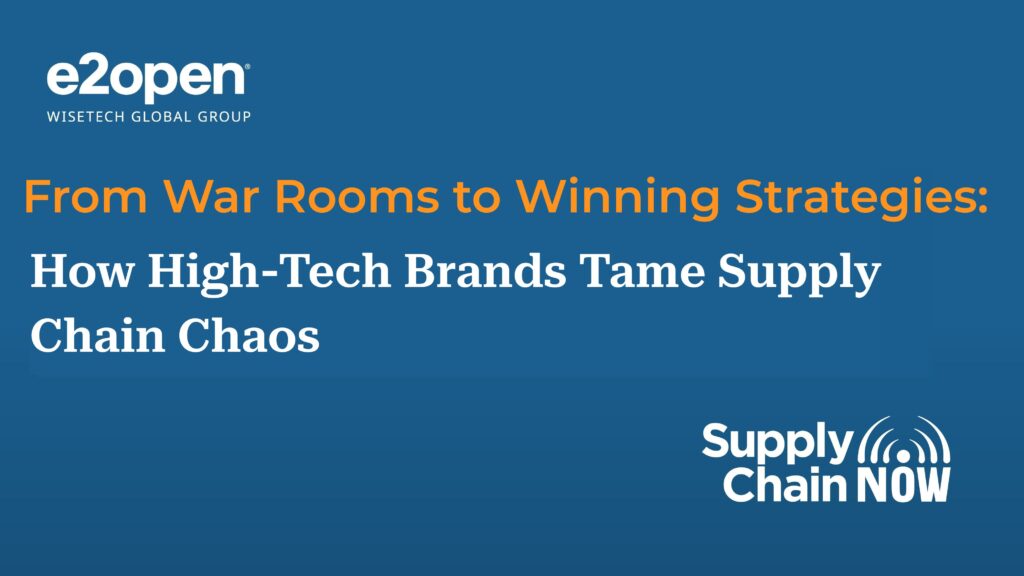
Enabling Procurement Professions to Tackle Scope 3 Emissions
Special Guest Blog Post written by Memory Mathema
Tackling climate change is one of the defining challenges of our lifetime. Understanding the implications of decarbonization is imperative to eliminating the risks that come with taking a complacent approach. Our responsibility lies in understanding the impact of our operations and acknowledging the escalating urgency to transition to a carbon neutral future and reduce the environmental footprint of all business undertakings. This is not only right for individual organizations but for the good of the whole society. South Africa ranks 14th globally in carbon emissions and stands as Africa’s leading polluter. The nation’s energy intense economy highlights its crucial role in spearheading efforts to reduce the continent’s carbon footprint and achieve net zero goals. Outdated energy generation methods, particularly coal reliance for 80% of energy needs, overshadow the country’s vast potential in hydrogen, solar and wind power. Both public and private sectors are recognizing the need for sustainable alternatives and are transitioning towards greener energy sources, fostering a shift towards sustainable carbon neutral supply chains.
Addressing Scope 3 emissions, which constitute a significant portion of global greenhouse gas emissions, is necessary to delivering carbon neutrality across operations. Organizations must entrench an eco-consciousness culture into their core values beyond direct emissions control.
Partnerships will be vital to deliver comprehensive low carbon transitions. Such partnerships will allow organizations to share costs, minimize risk and maximize opportunities to create sustainable business. Advocating for proactive Scope 3 emission mitigation within organizations is essential. Craig Miller CEO of Anglo-American Platinum (Anglo American Platinum Climate change report 2024) supports this notion and stated that, “Our supply chain has a vital role to play in our decarbonization efforts. Proactively engaging our suppliers remains a priority as 42% of our Scope 3 emissions are represented by purchased goods and services. We continue to work with Tier-one suppliers on the integration of environmental issues, including climate change.” Establishing internal baselines for Scope 3 maturity and prioritizing supplier engagement, adopting carbon abatement technology and organizational supply chain restructuring are vital steps. Increased emissions disclosure and proactive sustainability measures are critical amidst evolving regulatory landscapes. Enhancing supplier engagements through collaborative initiatives rather than data demands is pivotal for sustainable procurement success. The journey from planning to action necessitates a collective effort towards continuous improvement in emissions management.
There is a mounting emphasis within businesses on yearly training for employees in cyber security and ethics. However, there is a notable gap in educating procurement professionals on Scope 3 emissions to drive sustainability goals and achieve decarbonization. Understanding and addressing Scope 3 emissions is crucial for organizations aiming for net-zero targets. To play a more strategic role, procurement professionals must actively seek opportunities that align with organizational objectives, showcasing tangible contributions to long-term success. Collaboration with procurement professionals is key to driving impactful progress in Scope 3 reduction efforts.
The focus on infrastructure development to support a seamless transition to renewable energy is steadily increasing. Leading corporations like Unitrans Africa, Anglo American PLC, and Schneider Electric are setting the bar high in carbon maturity, driven by consumer demands and regulatory requirements. Anglo American Platinum is already participating in an off take agreement for 460 MW with Envusa Energy which is expected to be in commercial operation from 2025, accounting for 37% of Anglo American Platinum electricity requirements. These companies showcase the transformative power of revamping supply chains to meet sustainability obligations. By integrating sustainability into their core strategies, they demonstrate a commitment to a greener future while upholding high standards of data security and operational transparency.
Unitrans Africa, for instance, is dedicated to implementing a comprehensive sustainability roadmap that aligns every aspect of their operations with environmental responsibility. By leveraging sustainability as a competitive advantage, these companies enhance supply chain transparency rapidly. Their focus on leveraging technology, such as Carbon Emissions Dashboards, enables real time insights for optimizing fuel efficiency and vehicle routing, showcasing a commitment to innovation and environmental stewardship.
Carbon mature companies like H&M Group and Schneider Electric are dedicated to decarbonization efforts through the development and implementation of a detailed decarbonization roadmap. This strategic approach aims to pinpoint cost-effective pathways for reducing carbon emissions within their operations and prioritizing them to achieve the greatest impact. Specifically, H&M Group and Schneider Electric prioritize the reduction of indirect emissions by engaging in collaborative educational initiatives and awareness campaigns involving stakeholders along their value chain. For instance, H&M Group actively encourages its suppliers to adopt science-based targets initiatives when setting zero emissions target. They go so far as offering training sessions to facilitate this transition. Additionally, the group invests in training its procurement professionals to serve as in house experts, ultimately cutting costs compared to external consultants and fostering knowledge exchange with suppliers. By fostering a culture of sustainability and knowledge-sharing, these companies exemplify a proactive stance towards environmental responsibility and sustainable business practices.
As a successful Chief Procurement Officer (CPO), operating as a strategic leader and partner is crucial. It involves ensuring that procurement aligns seamlessly with the company’s overarching goals, focusing on revenue growth, cost efficiency, and market competitiveness. Collaborating with key stakeholders to grasp business objectives and translating them into procurement strategies that yield tangible value is paramount. Engaging stakeholders throughout the value chain is essential, particularly in obtaining Scope 3 emissions data. However, challenges may arise when partners do not measure their emissions or encounter hurdles in enhancing their measurement, reporting, and performance. It’s crucial to note that even small adjustments in the right areas can lead to significant impacts. Measuring and reducing CO₂ footprint, especially Scope 3 emissions, poses a significant challenge. TFG Africa is taking proactive steps by developing climate-related metrics to monitor and improve Scope 3 emissions. Their initiatives focus on enhancing production and consumer waste efficiency, sustainable sourcing practices, and supporting local suppliers. TFG Africa aims to slash absolute Scope 3 emissions from purchased goods and services, as well as upstream transportation and distribution, by 30% by 2030, as outlined in the TCFD Report 2023 for TFG Africa. In the South African context, many stakeholders may struggle with quantifying emissions or rely heavily on spend-based data, highlighting the need for enhanced clarity and guidance in this area.
While there have been substantial advancements in acceleration in climate change mitigation initiatives, financing remains a challenge. The critical issue of climate finance needed for the developing nations to effectively address climate change at a minimum cost of US$1.3 trillion annually by 2035 will be impeded by the Western nations cutting foreign aid and increasing their defence spending to bolster their security. This calls into question the commitments made at the COP29 conference to increase climate financing for developing countries. The remarks made by UN Climate Change Executive Secretary Simon Stiell echo some raw truths on this tumultuous phase, ‘This new finance goal is an insurance policy for humanity, amid worsening climate impacts hitting every country. But like any insurance policy – it only works – if premiums are paid in full, and on time. Promises must be kept, to protect billions of lives.” Geopolitical tensions will in adversely fuel inflationary pressures and stump economic growth projections. Developing nations will be pushed to seek alternative sources of funding and negatively impact efforts to meet the UN SDG goals. Governments will have to ultimately consider tax increase or cutting spending from welfare programs and infrastructural developments.
Going forward, a multilateral effort will be required between corporate organizations, government, and civil stakeholders to accelerate and sustain climate change transitions. Challenges like climate change test the robustness of any company’s strategy and its resilience. If your business strategy cannot be adaptive, then it needs to be changed. We must support more efforts to advance knowledge and expertise for innovative climate solutions. And thus, I call on procurement professionals to be frontline leaders to advance change and act to lower all 3 scope emissions.
Memory Mathema is a Procurement Specialist based in Johannesburg, South Africa. Her work involves driving continuous process improvement and integrating cross-functional strategies to enhance quality and efficiency of operations. She says, “I like to think l am one link that makes up the chain of Supply Chain Management professionals and l am woven into the interconnectedness of professionals who contribute to making business end-to-end processes efficient and effective.”
More Blogs

From War Rooms to Winning Strategies: How High-Tech Brands Tame Supply Chain Chaos

